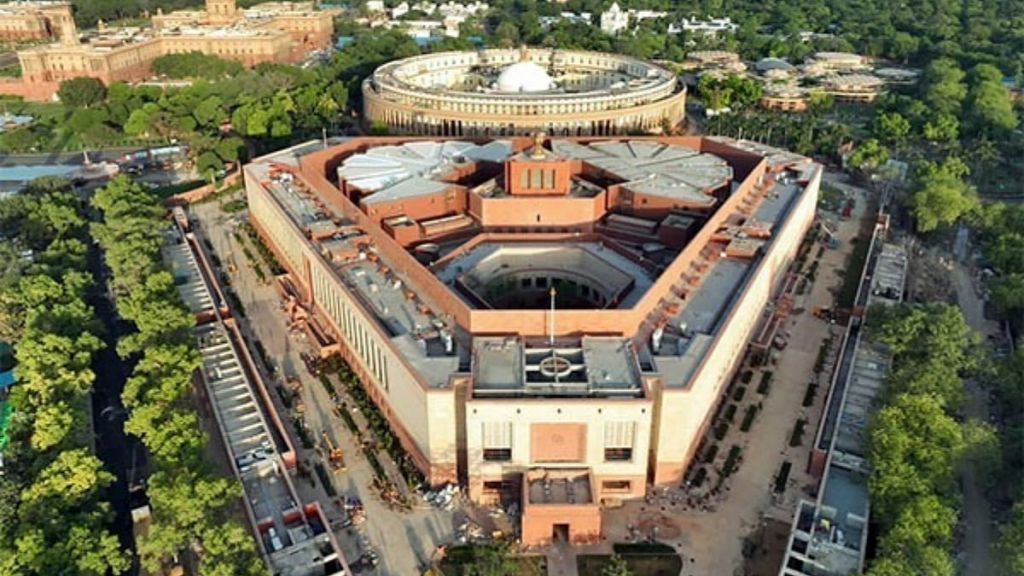
The Waqf (Amendment) Bill, introduced in the Lok Sabha on August 8, 2024, has proposed 572 amendments to the draft Bill, which anticipates renaming the Waqf Act of 1995 by dropping the name “Waqf.” This will be done after the passage of The Mussalman Waqf (Repeal) Bill, 2024. The government line is that the new law will improve the functioning of Waqf Boards at the Centre and in the states by streamlining the management of Waqf properties worth thousands of crores of rupees spread throughout India.
Granted that charges of corruption and mismanagement have plagued the Waqf properties, but this charitable institution has existed as long as the foundations of Islam. By replacing the word “Waqf” with some other name and including non-Muslim MPs in the Central and State Waqf Boards, the very identity of Waqf may be drastically changed. Our founding fathers were vehemently opposed to meddling in the personal law of the minorities.
In Islamic law, the word “Waqf” refers to any property dedicated in the name of God for religious or charitable purposes, to maintain mosques, fund schools or provide sustenance for orphans, widows, and the poor. Once designated as a “Waqf” property, it cannot be sold, gifted, or alienated through inheritance.
The Waqf Act of 1995 was introduced to regulate Waqf properties, but it was criticized because of mismanagement, corruption, and encroachments on Waqf land. The Modi government has proposed renaming the Act, updating the definition of Waqf, streamlining the registration process, and incorporating technology to improve the management of Waqf land.
One of the most controversial provisions in this Bill is the proposed inclusion of non-Muslims in key waqf institutions such as the Central Waqf Council, State Waqf Boards and Waqf Tribunals. The Bill empowers the Centre to appoint three MPs (two from the Lok Sabha and one from the Rajya Sabha) to the Central Waqf Council, without requiring them to be Muslims. These non-Muslims will not be well-versed in Islamic jurisprudence.
The Bill mandates that the State Waqf Boards must include two non-Muslims and two women as members, which has roused the ire of Asaduddin Owaisi, the AIMIM MP. These steps can be construed as infringing Muslim personal law because Waqf properties are to be used exclusively for Islamic charitable purposes. The 1995 Act mandated that all Waqf Board members must be Muslims. Now, registration of Waqf land must be done only through a written instrument that must be registered within six months. The Shari’a law allowed oral bestowments of Waqf properties.
Based on the given purpose of a Waqf deed, it can be divided into a few categories. If the purpose of a Waqf is to serve philanthropic causes solely, it is called a philanthropic Waqf. In contrast, if a Waqf is set up for private purposes to benefit the family or friends of the endower, the Waqf is described as family Waqf. The third category of Waqf is endowed to benefit the family and also all Muslims in a state.
The roughly half a million registered Waqf properties spread over 600,000 acres throughout India, roughly worth over Rs 1.2 trillion or $ 16 billion. Over 25 % of revenue can be generated from these Waqf properties to uplift poor Muslims by imparting secular education and skills so they can earn a livelihood. As the government has abolished scholarships reserved for minorities, the income from these Waqf properties will ensure that the charitable purpose of caring for the poor, widows, orphans is immediately met.
Maharashtra assembly Speaker, Rahul Narwekar’s assertion that this state should enact a law to bring all religious properties under the government, evoked a rebuke from Cardinal Oswald Gracias because, like Waqf, the government will pick the cherries from the pie through taxes. Compare Narwekar’s statement with what the Modi government has done on the Waqf properties and the picture becomes clear.
The Modi government’s actions have decimated the Opposition, evidenced by the fact that since the Modi government came to power, out of 121 politicians under the Enforcement Directorate’s (ED) scanner, 115 (or 95 %) were from the Opposition. During the UPA government regime, the ED questioned, raided, or arrested only 14 (or 54%) from the Opposition.
Compare this with the government wanting to drop the term “Waqf” from the new law and include non-Muslims in the Waqf Boards for a clear picture to emerge. That the ED’s powers are misused to influence state and national politics is unmistakable because a few involved in administering Waqf properties have come under the ED scanner.
Now, contrast this with Rajasthan recently enacting an anti-conversion law, making the offence of “conversion” non-bailable and jail up to 10 years mandatory. We have a law bringing an alleged religious offence on par with the draconian Prevention of Money Laundering Act, investigated by the ED. The Rajasthan law sought to prevent “forcible” conversion of tribals and to keep a check on “love jihad” although the government declared in Parliament there was no evidence of this offence and “love jihad” had not been defined under any law.
Once passed, Rajasthan will become the 12th state in India to enact such a draconian anti-conversion law which aims to prevent proselytisation (propagation) though Article 25 of the Constitution explicitly guarantees propagation. The government does not keep statistics of tribals, Muslims, or Christians converting to Hinduism which is occasionally done through threats or inducement such as losing the benefit of reservations in government colleges and jobs if the candidates are Muslims or Christians.
Every secular nation in the West leaves religion, administration of religious trusts and properties to the religion concerned, which is why Hindu temples and trusts have proliferated in the West. Western nations gradually receded from religious affairs whereas we see the converse is true in India. Governmental amendments of the Waqf law and enactment of anti-conversion laws prove this.
Dr Olav Albuquerque holds a Ph.D in law and is a senior journalist-cum-advocate of the Bombay high court.